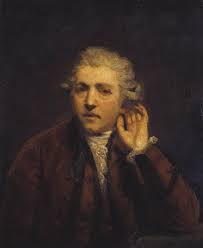A while back, I got into a conversation with one of my Olde School Wizardry players about how remote communication works in our campaign world. He had a couple ideas for how his wizard might create magical ear-pieces for profit. To assist, I sketched out how tele-communication worked using the rules of our homebrew system, so he could devise improved and alternate methods. Some of that content follows, mainly so that it isn't just floating around in my gmail but here where I can find it!
--------------------------------------------------------------------------------------------------------------------------------
The Olde School establishment tends to value tradition over innovation and it's only the young bucks trying to earn prestige by developing new Sciences and Formulae who are motivated to innovate, and even then the innovation isn't really about practical application, merely about doing something new.
Traditional, arcane tele-communication is probably accomplished most often through one of two methods:
A. A Muttering Stone ("mussare-lith?"): Enchant, Science [Stone, Wood, Cheese, etc.], no Spatial, Shadow of Lurrock, Thaumic = something similar to Rice's Discord (which repeats sounds), but this allowing the caster to hear as if his ear was located where the spell's focus is. The object goes into a thin, sealed box and gets exchanged with another wizard who has done likewise. This is funny because the box of course muffles the sound somewhat so both users need to speak LOUDLY and slowly. Miscommunication is frequent. Storing the box is inconvenient because of privacy and the potential to annoy the fellow on the other end with random, muffled sounds at all hours.

B. Sound is an established Science. Along with Gonfur's Circle, or something similar, one could Conjure the Sounds from a particular area at a pre-established time. The communication is uni-directional of course. Two circles laid out side-by-side could allow for a sort of telegraph/hopscotch.
Speech, in the backwards world of Olde School Wizardry, is considered to have less gravitas than the written word (which can be chosen with great care, repeated without alteration, and which can grant the wizard a sort of immortality). Much tele-communication then depends on print. A writing tablet made of Science X is carefully handled and marked by wizards within that School. Spatial Formula, Gore's Sigil of Choice, is applied and the wizards can now Conjure that item back and forth between themselves at will, making a sort of chain letter. Punk, neophyte wizards who have only very shabby Temporal Formulae end up having less bandwidth of course.
Stone Tooth, to help in the crafting of magical charms, is a pretty good application of magic and those who hold the proper licenses from the Estates Arcanum to manufacture and sell them do a brisk business (as do counterfeiters). The average peasant cannot afford one and has to take his chances. The average nobleman has his own wizard on retainer to put broader spells of Warding and Restoration on things and seldom has interest unless they are rendered with particular attention to fashion and artistry (a brocade hem to a tunic festooned with a rainbow of Enchanted gemstones for instance). Consumers, therefore, tend to be members of the small (but growing) middle class ... merchants, professional soldiers of a certain type, ship captains, and wizards. Any wizard can counter these amulets and charms (Spellcraft, Minor Temporal Tweaker), so anyone likely to run afoul of a wizard (or an enemy employing one) may as well save his coin.

The alternate idea of using portal-magery to Conjure or broadcast sounds directly into the "portal" of a person's ear-canal (with or without that person's permission/knowledge) is complicated, funny, and a very good idea. You should definitely try it.
